Seminar on Science Communication and Outreach
Training day on dissemination and communication of science:
"Communicating science with the help of AI".
The Science Museum has among its three main objectives -in addition to research and education- the communication and dissemination of science. To achieve this, it proposes courses, seminars or talks aimed at improving the skills and knowledge necessary for researchers themselves to become loudspeakers of their work, thus helping to expand the presence of science in the media agenda and increase society's general knowledge of these issues.

June 7, 2024
From 09:30 to 14:00 h.
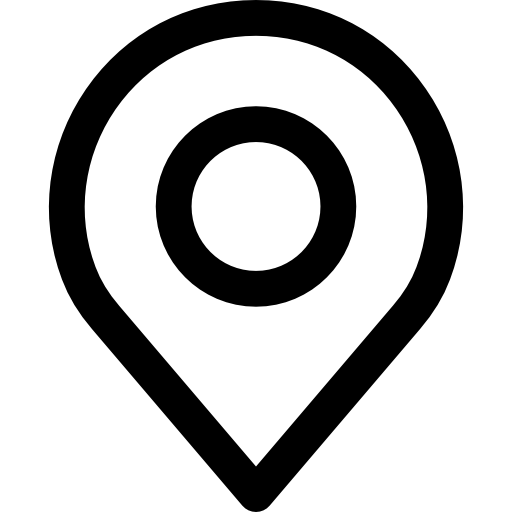
Classroom 10
Science Library Building University of Navarra

Aimed at researchers at the University of Navarra.

Limited seating

Price: 7 euros
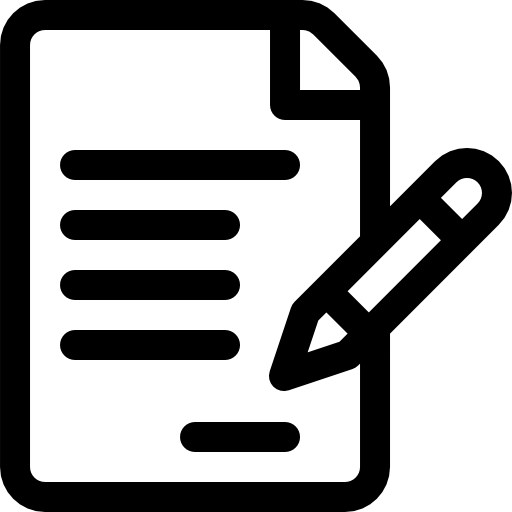
Registration
(Full seats available)

Carmen Torrijos
Computational linguist and head of IA
at Prodigioso Volcán

Miren Agirregomezkorta Iza
AI solutions for marketing
and communication

9:30-11:00 - Introduction to generative AI: how to apply it to science communication and the value of prompts.
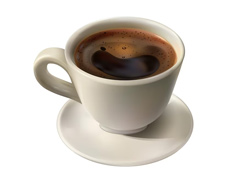
11:00-11:30- Coffee-break
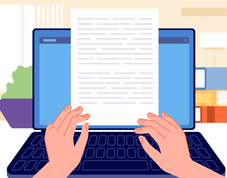
11:30-13:30 - Practical workshop: tools for the documentation process, summaries of scientific articles, outlines for informative articles, translations.
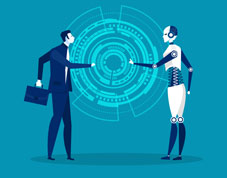
13:30-14:00 - Ethics and limits of the use of AI
Previous editions
In the 2023 edition of this seminar we analyze the fact that several thousand scientific articles are published every day. The vast majority of them will not be read by anyone and will never be cited. There is also a growing tendency for the evaluation systems of the curricula of researchers to also value other activities such as the dissemination and diffusion of science. It is high time to replace the famous "Publish or perish" with "Become visible or disappear". In this conference, aimed especially at master's and doctoral students and young (or less young) researchers, some practical strategies were shared to facilitate the communication of science to society.
Program
9:15 - What to do if a journalist calls you and how to face an interview?
Ignacio López-Goñi, Professor of Microbiology. Director of the Science Museum, University of Navarra
10:15 - How to write an informative article? The case of The Conversation
Claudia Lorenzo, Editor of The Conversation
11:15-11:45- Coffee break - Networking
11.45-13:15 - How to do a television interview?
Bienvenido León, Professor of Communication. Director of the Department of Journalism, University of Navarra.
Radio is the best means of communication in the world. It may seem an excessive statement, but we only need one morning to prove it. To prove it... and to offer the basic tools needed to make podcasts, in this case, of scientific content.
In this workshop, of a markedly practical nature, we will first carry out an anatomy of the radio. In other words, we will "gut it" to see what it is made of. Knowing the elements that make up the language of radio, what they are, what functions they perform, will help us to know how to use them effectively to make our scientific content informative and also attractive to the listener.
We will also learn the basic rules for writing a radio script, we will look at some of the audio editing software we can use to make our programmes and the platforms on which we can place them to reach the audience. We will review some types of radio programmes, to see which formats best suit our style and content. And in the end, we will all see that radio is indeed the best means of communication in the world.
Program
1. Introduction: the greatness of radio.
2. How do you make a podcast? Part1 : What it sounds like.
→ Elements of radio language: Functions and use of speech, music, sound effects and silence.
→ Sound editing: Main editing and editing programmes.
→ Broadcasting: Places to host our podcasts
→ Dissemination: Let the world know about it
3.- How do you make a podcast? Part 2: what we talk about.
→ How to write a radio script. Main types of radio scripts.
→ Radio formats / genres. Types and examples
4.- Some technical tips and tools.
5.- Bibliography.
6.- Sharing of ideas for future podcasts by the students.
More information
![]() Susana EscuderoCanal Sur Radio journalist with more than 20 years of experience in the media.
Susana EscuderoCanal Sur Radio journalist with more than 20 years of experience in the media.
![]() Friday, June 3, 2022
Friday, June 3, 2022
![]() From 9:30 a.m. to 2:00 p.m.
From 9:30 a.m. to 2:00 p.m.
![]() Room 4C02. Science Building (Hexagon)
Room 4C02. Science Building (Hexagon)
![]() 20 / person
20 / person
Are you a researcher but don't know how to make your science more informative? The Science Museum of the University of Navarra offers you a practical workshop to make your science attractive and visual. We provide you with the fundamental tools and concepts to create science videos for social networks and to communicate visually through scientific infographics.
Aimed at students, doctoral students and researchers from any area interested in improving their communication skills in the field of science. The Science Museum will certify attendance.
This workshop takes place in two sessions. On the first day the theoretical and practical basics are taught and during the week the students will have to carry out an exercise. On the second day, the results will be presented, analysed and evaluated.
Faculty:
- Bienvenido León, Professor at the Faculty of Communication of the University of Navarra.
- Heber Longás, scientific infographer at Fundamentium.
Dates:
Tuesday 25 May 2021
- 9:00 - 11:00 - How to make a science video for social media.
- 11:30-13:30 - How to communicate visually through scientific infographics.
Monday 31 May 2021:
- 9:00 - 11:00 - Practical session and sharing of results: science video.
- 11:30-13:30 - Practical session and sharing of results: scientific infographics.
Venue: Room 3E02. Science Building (Hexagon).
Price: 20 €/person
Limited places.
More information and registration: museociencias@unav.es
Organised by: Museo de Ciencias Universidad de Navarra with the collaboration of the Fundación Española para la Ciencia y la Tecnología (FECYT).
On Tuesday 19 November, the Scientific Culture Unit of the University's Science Museum has organised a training seminar for teachers, researchers and other interested parties to improve their ability to disseminate their knowledge in the media and social networks.
In order to facilitate attendance, two sessions have been organised:
- From 12:30 h to 14:00 h, in the Siemens-Gamesa hall of the ICS
- From 15:15 h to 16:45 h, in the Cima assembly hall
Those who wish to attend can confirm their attendance before Saturday 16 November at museociencias@unav.es, specifying the session they will be attending.
Speakers and topics:
Jesús C. Díaz, Corporate Director of External Communication at the University, will talk about "How to communicate your science effectively to the media? How is the relationship with the media, what do journalists ask for, what can the expert offer, what does communication bring to the University".
Ignacio López-Goñi, professor of Microbiology and director of the Science Museum, will give the session "Visible or vanish: science that doesn't count doesn't count. How blogs, Twitter and other social networks can help you to make your science more visible".
Dolors Marco, director of reputation at the Clínica, will speak on "Communication as part of personal and institutional reputation". (Speech scheduled for the 15:15 session at CIMA).
The University's Scientific Culture Unit is associated with the Science Museum and works in coordination with the vice-rectors' offices for Communication and Research. Its aim is to promote actions related to the dissemination and communication of science, and the advice and training of teaching and research staff in the dissemination of science and technology.
The Science Museum of the University of Navarra and the Chair of Scientific Culture of the UPV/EHU have organised the summer course "Communicate your science", within the framework of the UPV/EHU's Summer Courses. The aim of this course is to offer practical training in scientific communication and dissemination tools to university teachers, researchers, undergraduate and postgraduate students, science communication managers, journalists and, in short, to all those interested in the dissemination of scientific knowledge and culture.
Dates: Thursday 27 and Friday 28 June 2019.
Opening hours: from 9:00 to 18:00.
Venue: Palacio Miramar (Paseo de Miraconcha 48, Donostia-San Sebastián).
More information and registration
Programme:
Thursday 27 June 2019
09:00 - 09:15h. Delivery of documentation.
09:15 - 10:00h. "The context of science popularisation". Juan Ignacio Pérez Iglesias UPV/EHU - Director of the Chair of Scientific Culture.
10:00 - 10:45h. "The important thing is not the tool, it is the strategy". Ignacio López Goñi University of Navarra - Director of the Science Museum.
10:45 - 11:30h. "The UPV/EHU research activity dissemination project". Miren Bego Urrutia Barandika UPV/EHU - Director of social dissemination of research.
11:30 - 12:00h. Break.
12:00 - 14:00h. "How to make a scientific video". Bienvenido León Anguiano University of Navarra - Professor of Science Journalism.
16:00 - 18:00h. "Scientific illustration: improve your scientific communication through drawing". María Vega Asensio Herrero NorArte studio - Professor of graphic design applied to science and scientific illustration.
Friday 28 June 2019
09:00 - 10:15h. "Radio: your science in a minute". Susana Escudero Martín Canal Sur Radio Televisión - Journalist in charge of 'El Radioscopio', a popular science programme on Canal Sur Radio.
10:15 - 11:30h. "Social networks to communicate your science". Uxune Martinez Mazaga Euskampus - Head of scientific dissemination of the UCCi of the Euskampus Foundation.
11:30 - 12:00h. Break.
12:00 - 14:00h. "Disseminating science, how to make a communication plan for your research project". Lucas Sánchez Sampedro Scienseed - Co-founder and director of Scienseed.
16:00 - 17:30h. "How the UCC of your University helps you to communicate your science". Elena del Rocio Lázaro Real University of Cordoba and CRUE - Coordinator of the UCCi University of Cordoba and Coordinator of Red-Divulga CRUE.
17:30 - 18:00h. Synthesis.
Tuesday, 19 June 2018 - Classroom 10 (Science Library building), 9:30 to 13:00
Do you want your work to be much more visible?
Use the tools of the 21st century
The Science Museum, in collaboration with the Quality and Innovation and Digital Communication services of the University of Navarra, has organised a conference for researchers and teachers in the area of science on the professional use of social networks for research work and the dissemination of science.
9:30 - 10:00 - The popularisation of science on the Internet: from blogs to social networks - José Luis Orihuela
10:00 - 11:00 -Tell your science on social networks
Twitter - Ignacio López-Goñi
Instagram - Silvia Corzo
11:00 - 11:30 - Coffee Break
11:30 - 12:30 - Networks to give visibility to your professional profile
ResearchGate - Arantxa Itúrbide
Linkedin - Elena Ojer
12:30 - 13:00 - Presentation of the project Improve your Digital Identity at the University - Iñaki de Lorenzo
Science communication has undergone a real revolution with the advent of social media. However, dissemination is still about publishing, spreading and making knowledge available to the public. If you want to learn from those who have made it their profession, this is the seminar for you. A meeting with great experts aimed at all audiences, but especially at undergraduate and postgraduate students.
Session 1. Telling science stories (29 September 2018)
- 10:00-10:15: Introduction to the Seminar on Science Communication and Popularisation. Ignacio López-Goñi, director of the Science Museum.
- 10:15-11:00: How to make a science video for social networks. Bienvenido León, professor of Journalistic Projects at the Faculty of Communication.
- 11:00-11:45: Storytelling: Landscapes, Ways of telling science. Belén Torregrosa, consultant and teacher. The Flowers of Time. @belentorregrosa.
- 11:45-12:15: Coffee break.
- 12:15-14:00: Workshop. The mechanics of science communication. Eva Caballero, journalist from Radio Euskadi. Live recording of a podcast-interview for the programme "La mecánica del caracol".
Session 2. Networking and infographics (6 October 2018)
- 10:00-11:45: Twitter and blogs in science communication. Ignacio López-Goñi.
Tell your science on Instagram. Silvia Corzo.
- 11:45-12:15: Coffee break.
- 12:15-14:00: Workshop: How to communicate visually through scientific infographics. Heber Longás, scientific infographist at Fundamentium.
Session 3. Other ways of communicating science (13 October 2018)
- 10:00-10:45: The context. Alex Navas, lecturer in Sociology at the Faculty of Communication.
- 11:00-11:45: The universe in a planetarium dome. Javier Armentia, astrophysicist and director of the Pamplona Planetarium.
- 11:45-12:15: Coffee break.
- 12:15-14:00: Workshop: The science of gadgetry or how to teach chemistry through experiments. José Ramón Isasi, lecturer in Chemistry at the Faculty of Science.
Session 4. The chemistry of science communication (20 October 2018)
- 10:00-10:45: It's all about chemistry and I tell it everywhere. Deborah García Bello, chemist and science communicator.
- 11:00- 11:45: Disseminating nutrition, is anything goes? Elena Gascón Villacampa, Dietician-Nutritionist, Official College of Dieticians-Nutritionists of Navarra.
- 11:45-12:15: Coffee break.
- 12:15-14:00: Workshop. Communicating science in the 21st century, how to explore the different narratives. Lucas Sánchez, co-founder and director of Scienseed.
Session 5. Museums and outreach (27 October 2018)
- 10:00-11:45: Science outreach for the general public from a science museum. Jordi Portabella, director of the Area of Scientific Dissemination and Cosmo Caixa of the "la Caixa" Banking Foundation.
- 11:45-12:15: Coffee break.
- 12:15-13:45: Presentation of "Your science video". Welcome León.
- 13:45-14:00: Closing of the seminar.
Organised by the University of Navarra Science Museum
Aimed at researchers(*), doctoral students, professors and students of any scientific discipline at the University of Navarra.
Day: Thursday 4 April 2019
Time: from 10 a.m. to 2 p.m.
Place: multimedia room (2nd floor of the Social Sciences building - FCom.
Speakers:
- Bienvenido León, lecturer in science journalism, University of Navarra.
- Álvaro Bonet, lecturer in audiovisual production, University of Navarra.
Content:
Workshop with practical exercises in scripting, recording and editing videos that help to communicate briefly and effectively a research project.
1. How to tell a research project in one minute? Keys to scientific video.
2. The production process.
3. Development of the script: synopsis, outline and literary script.
4. Recording a video with a smartphone.
5. Editing. Narrative criteria. Adobe Premier basics.
6. Archival images. Animation.
7. Practical exercise. Development of a video.
Participants must attend the workshop with a smartphone.
Workshop complete now. Registration closed.
Register by email museociencias@unav.es.
The workshop is free of charge. The Science Museum of the University of Navarra will certify attendance.
(*) This workshop may be especially interesting for those researchers who are going to apply for the SciencEkaitza competition.


